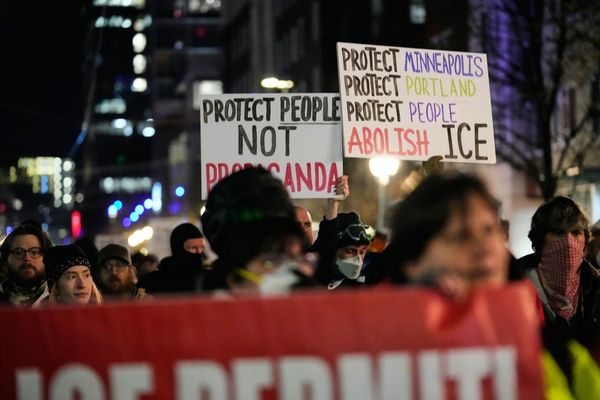
Police in Washington D.C., New York City, and Los Angeles are increasing security at religious institutions in preparation for potential backlash against Donald Trump's airstrikes on Iran.
American stealth bombers and cruise missiles rained destruction on Iranian nuclear facilities on Saturday night, bringing the U.S. into Israel’s war with Iran.
Now city authorities are bracing for potential blowback following a spate of violent attacks against Israeli diplomats in Washington D.C., Pennsylvania's Jewish governor, and a protest march for the release of Israeli hostages in Boulder, Colorado.
"Out of an abundance of caution, we have increased police presence at religious, cultural, and diplomatic sites throughout the five boroughs," said New York City Mayor Eric Adams on X (formerly Twitter) on Sunday.
New York Governor Kathy Hochul similarly said the city's transit agency and Port Authority had activated counterterrorism protocols, with State Police to patrol houses of worship and other sensitive places.
This morning, @NYPDPC and I convened our international liaisons for a briefing to discuss the situation in the Middle East and how it affects us here at home.
— Mayor Eric Adams (@NYCMayor) June 22, 2025
Out of an abundance of caution, we have increased police presence at religious, cultural, and diplomatic sites… pic.twitter.com/zXPkmEh6cr
Washington D.C.'s police department said it was "maintaining an increased presence at religious institutions across the city" while "closely monitoring the events in Iran".
Los Angeles Mayor Karen Bass similarly said the LAPD would "step up patrols near places of worship, community gathering spaces and other sensitive sites" in the wake of the Iran bombings.
All three cities' officials said they were not currently aware of any specific threats, and were merely taking precautionary measures.
Longstanding tensions between Israel and Iran have mounted over the past two years as Israel's war with Hamas, and its subsidiary conflict with the Iranian-backed militant group Hezbollah, spilled over into nearby countries.
But on June 13, Israel launched a surprise air attack against Iran's military leadership and nuclear program, sparking an exchange of warheads that is estimated to have killed at least 639 people in Iran and 24 in Israel.
Israeli officials have claimed they were forced to act because they believed Iran, whose leaders have often called for Israel's destruction, was “approaching the point of no return” in developing a nuclear weapon.
Israel itself is widely believed to have acquired nukes in the 60s or 70s, but has a longstanding policy of preventing any hostile state from doing the same.
Polls suggest Americans overwhelmingly oppose the U.S. going to war with Iran, with about 41 percent saying Trump's strikes have made the country less safe.
US strikes on Iran add to global travel disruptions and flight cancellations
In run-up to Iran air strikes Trump gorged on Fox News guests urging he join Israel’s war: report
Trump claims Israel and Iran ceasefire: Vance says ‘They don’t want to keep fighting’
B-2 bomber pilots had microwave, snacks and toilets on 37-hour flight to Iran
Loose uranium and hardliner anger: Why Trump’s strikes may drag U.S. into a quagmire







